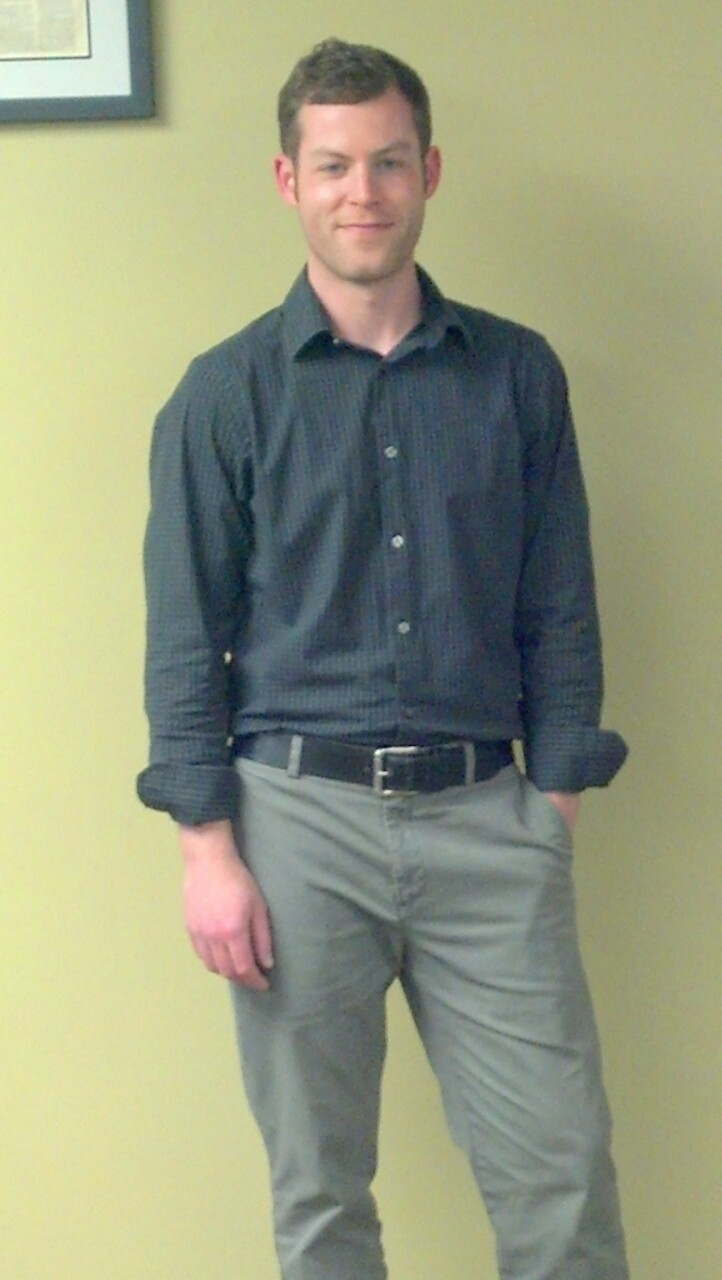The Path Less Traveled
GSE Student Roger Von Braun Goes from Law School to Special Education

Plans, like promises, are often bound to be broken. When Graduate School of Education (GSE) student Roger Von Braun graduated from Stony Brook with his bachelor’s degree, his intention was to segue into law school. “I took the LSATs and everything else,” he remembers. “And then when I got my first acceptance letter to law school, I felt like I was going to throw up, so I realized that probably wasn’t the best path for me to take.”
So, Von Braun hit pause and took a year to reflect. The Long Island native always liked working with children and, as he puts it, had “always been able to reach kids.” But since both his parents were educators, he’d always ventured in the decidedly opposite direction. After getting an associate’s from SUNY Farmingdale he had gone on to get a bachelor’s degree in Multidisciplinary Studies with concentrations in English, history, and political science, with every intention of continuing on to law school. After that wave of uncertainty about the legal profession, however, the teachers’ son realized some roads inevitably lead home.
His work in a physical therapist’s office, with patients of all ages, highlighted how much he enjoyed working with children and helped push him towards education. “I always enjoyed working with the kids,” he says of the physical-therapy job. “They had such a positive, happy energy. It was the compelling factor into me saying, ‘OK, I’ll go into education.’”
While earning his Master’s at GSE, Von Braun completed observation hours at a District 75 school in Far Rockaway, Queens and student teaching in Roslyn public schools, with a focus on special education. He had found a new road worth traveling. “I came to the conclusion that I got a lot out of it and the kids did as well,” he says of those first encounters with special-ed classrooms. Now, as he prepares to apply for related work with various nationwide programs, Von Braun bears in mind the key attributes he’ll need to exude every day.
“One of the biggest things is just the attitude and the energy that a teacher brings, especially with students that are special needs or have some sort of disability,” he explains, adding that his interactions with autistic children in particular led to the realization that “regardless of the words that are coming out of your mouth, if you’re approaching them with any kind of frustration because of the way they’re behaving, then you don’t get very far. I have a decent amount of patience and understanding and was able to reach kids who I wouldn’t have thought I’d be able to, and they seem to respond well to that. The most important thing is just to approach special-needs students in a caring, calm and respectful manner to put them at ease.”
And, of course, Von Braun has been given plenty of insight from these children in return. “One of the most powerful things is you can never and should never underestimate a student or their ability to grow, change or learn,” he offers. “Many teachers can feel like they’ve reached the child the best they could and gotten the most out of them, but whether it’s different stimulus or games or fun or one-on-one instruction, students’ potential is unlimited, and they should never be put into a one-size-fits-all type of deal.”
Even if, for a time, Roger saw himself arguing sides of a trial in court, he still vividly recalls the early educators who molded him. So maybe it was inevitable that he’d one day walk in their shoes, helping other young people begin to visualize their own limitless future plans. “The teachers who stick out to me are the ones who, regardless of how frustrating the situation might have been, were happy or caring…. Now that I’ve seen first-hand how many students and children there are who have special needs, there’s not nearly enough people in the field to handle them, but also it’s so much more rewarding than any kind of work I’ve ever done. No regrets whatsoever.”

